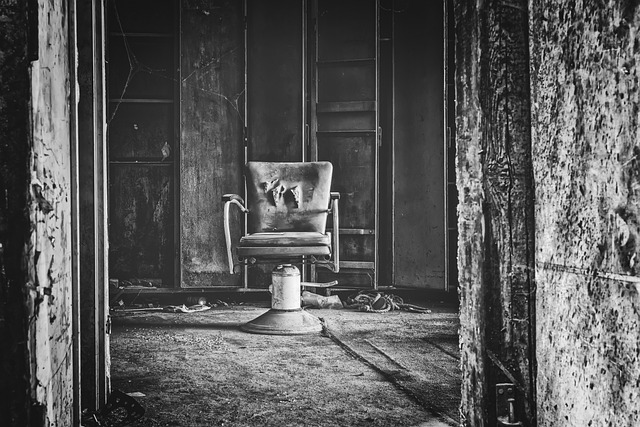Addiction among healthcare workers, especially doctors and nurses, is a growing concern due to unique job stressors like long hours and exposure to controlled substances. Many fear seeking help due to stigma, career repercussions, and potential license loss. Specialized, confidential doctor addiction treatment programs are crucial for their recovery while protecting careers and licenses. These programs offer tailored interventions, evidence-based therapies, peer support, and integrated care, addressing stress management and burnout triggers common in the medical field. By prioritizing patient privacy and ethical guidelines, these programs create a secure environment for healthcare professionals to access much-needed support and return to patient care with improved resilience.
In the demanding realm of healthcare, where long hours and high-stress environments prevail, addiction among medical professionals is a growing concern. This article delves into the critical issue of confidential addiction treatment tailored specifically for doctors and healthcare workers facing substance abuse challenges. We explore the unique barriers that prevent timely intervention, highlighting the need for specialized programs designed to address these sensitive concerns. Through an in-depth look at doctor addiction treatment options, we emphasize the importance of privacy measures and post-rehab support for lasting recovery.
- Understanding the Prevalence of Addiction among Healthcare Professionals
- The Unique Challenges and Barriers to Seeking Treatment
- Specialized Doctor Addiction Treatment Programs: An Overview
- Confidentiality and Privacy Measures in Addiction Rehabilitation
- Supportive Resources for Continuous Recovery After Treatment
Understanding the Prevalence of Addiction among Healthcare Professionals

Addiction is a growing concern within the healthcare industry, often overlooked due to the perception that medical professionals are immune to such struggles. However, the reality is quite different. Doctors and nurses, despite their critical roles in society, face unique stressors and challenges that can contribute to substance abuse and addiction. These include long working hours, high-pressure environments, emotional trauma from dealing with patient suffering, and even exposure to controlled substances during training or practice.
The prevalence of addiction among healthcare workers is a pressing issue that demands attention. Studies reveal alarming rates of substance use disorders in this population. For instance, research indicates that doctors and nurses are more likely to experience prescription drug abuse and addiction compared to the general public. Moreover, many medical professionals fear seeking help due to concerns about stigma, career repercussions, and potential loss of their medical license. Thus, specialized and confidential doctor addiction treatment programs and nurse addiction treatment support systems are crucial for facilitating recovery while safeguarding healthcare worker recovery and medical license protection.
The Unique Challenges and Barriers to Seeking Treatment

Many healthcare professionals and medical workers face unique challenges when it comes to seeking help for their addictions. The demanding nature of their jobs, along with the high-stress levels and emotional strain, can create a culture of silence around addiction within the medical community. This fear of judgment or repercussions may deter them from openly discussing their struggles and pursuing doctor addiction treatment. Additionally, maintaining patient confidentiality is paramount in healthcare, which could make it difficult for professionals to access specialized care without compromising sensitive information.
Another barrier is the potential impact on their medical license and career. Healthcare workers must be aware of the importance of seeking professional help without fear of repercussions. Medical license protection is crucial for those considering nurse addiction treatment or doctor addiction recovery programs, as these steps towards healing can be delicate in terms of public perception and regulatory standards. However, with proper support and understanding, healthcare professionals can navigate these challenges and find the strength to prioritize their well-being through effective and confidential addiction treatment options.
Specialized Doctor Addiction Treatment Programs: An Overview

Specialized Doctor Addiction Treatment Programs offer tailored interventions for healthcare professionals facing substance use disorders. These programs recognize the unique challenges faced by doctors and nurses, including potential concerns about medical license protection, while ensuring confidentiality. The primary focus is on evidence-based therapies, peer support, and integrated care to facilitate healthcare worker recovery and restoration of their professional licenses.
These specialized treatments often incorporate a combination of individual counseling, group therapy sessions, and aftercare planning. Nurse addiction treatment programs, for instance, may include education on managing stress and burnout, as these are common triggers for substance misuse in the medical field. By addressing both the addiction and any underlying issues, these programs aim to help healthcare professionals achieve long-term sobriety and return to their careers with enhanced resilience.
Confidentiality and Privacy Measures in Addiction Rehabilitation

In the sensitive realm of healthcare, where professionals dedicate their lives to healing others, addressing personal struggles like addiction can be particularly challenging. Confidentiality and privacy are paramount in doctor addiction treatment programs, ensuring medical workers feel secure while seeking help for themselves or colleagues. These programs employ robust measures to safeguard patient information, adhering to strict ethical and legal standards.
For nurses and other healthcare workers facing addiction, specialized facilities offer a safe haven where they can begin their journey towards recovery without fear of exposure or judgment. This discretion extends beyond the treatment environment, encompassing comprehensive protection for medical licenses as well. By prioritizing confidentiality, these rehabilitation centers foster an atmosphere of trust, enabling professionals to prioritize their well-being and return to patient care with renewed focus and resilience.
Supportive Resources for Continuous Recovery After Treatment

Healthcare professionals facing addiction issues deserve specialized support. By recognizing the unique challenges they face, we can break down barriers to treatment. Confidential doctor addiction treatment programs offer a safe space for recovery, emphasizing privacy and ongoing resources. With these measures in place, medical workers can access the help they need without fear of stigma or judgment, ensuring better patient care and personal healing.






